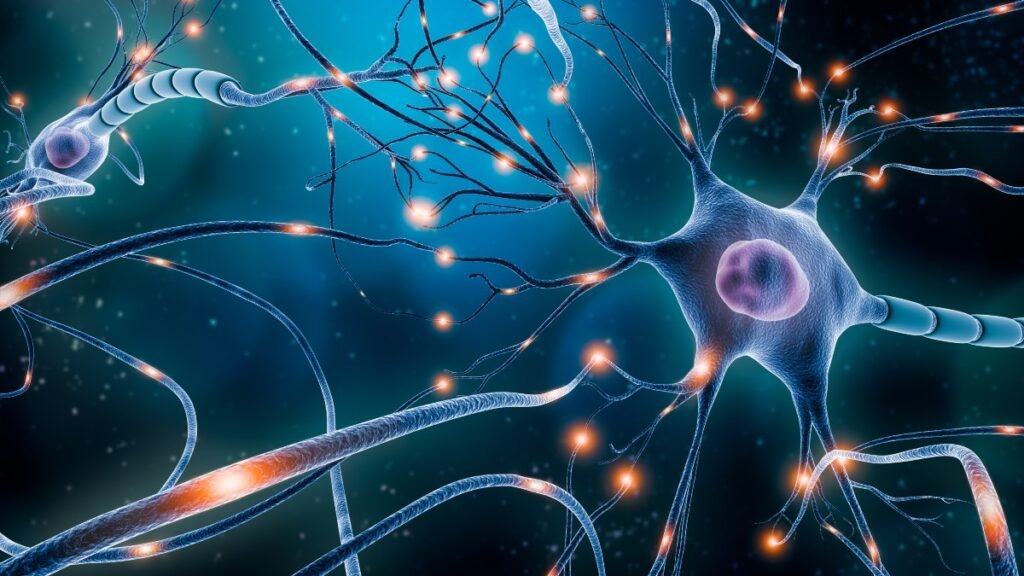Table of Contents
Tossing and turning, struggling to catch those elusive Z’s? Discover the surprising connection between zinc and sleep. This article delves into the often-overlooked role of zinc in promoting restful sleep, exploring how zinc deficiency can disrupt sleep patterns and how proper zinc intake might just be the key to unlocking a night of deeper, more restorative slumber. Join us as we explore the science behind zinc’s impact on sleep and uncover practical tips for incorporating this essential mineral into your routine for a more peaceful night’s rest.
Brief The Article:
The Unexpected Sleep Benefits of Zinc
Zinc plays a crucial role in sleep quality, which is often overlooked. A zinc deficiency can lead to poor sleep, among other health issues.
Zinc’s Functions in Sleep Regulation
- Zinc is the second most abundant trace mineral in the brain
- It’s involved in neurotransmitter function
- Zinc helps build up adenosine, which creates sleep pressure
- It’s involved in the production of dopamine, serotonin, and melatonin
- Zinc influences glutamate pathways affecting deep sleep
- It acts as a sleep modulator, helping control sleep
How to Take Zinc for Sleep
- Take zinc with copper in a 10:1 ratio
- For every 8-10mg of zinc, take 0.5-1mg of copper
- Consider taking zinc and copper with a blend of trace minerals
Foods Rich in Zinc
- Oysters have the highest zinc content
- Oysters also contain taurine and GABA receptor agonists, beneficial for sleep
- People with shorter sleep duration typically have less zinc in their bodies
Importance of Adequate Zinc Intake
The blood-brain barrier has low permeability for zinc, emphasizing the need for sufficient zinc intake to ensure proper sleep regulation.
So let’s dive into the details…
Zinc and sleep

The Surprising Connection Between Zinc and Sleep Quality
Now zinc does so many things – it’s involved in over 300 different pathways but recently I found out that zinc has an unexpected sleep benefit. Typically when you think of a zinc deficiency you think of a child not growing very fast or someone having low testosterone or they can’t taste or smell or they have poor wound healing or a poor immune system or even they may develop an ulcer but one huge symptom for a lack of zinc is poor sleep.
Key Points:
- Zinc is involved in over 300 different bodily pathways
- Zinc deficiency can lead to various health issues
- Poor sleep is a significant symptom of zinc deficiency
Zinc deficiency
Common Symptoms of Zinc Deficiency

So zinc has a major influence over the central nervous system. In fact, it’s the second most abundant trace mineral in your brain. It’s involved in neurotransmitters which are those hormone communications that travel through the nervous system. It’s also essential for making adenosine.
Zinc’s Role in the Body:
- A major influence on the central nervous system
- Second most abundant trace mineral in the brain
- Involved in neurotransmitter function
- Essential for adenosine production
Functions of zinc
The Crucial Role of Zinc in Sleep Regulation
Now what is adenosine? Adenosine is a molecule that gradually builds up through the day and creates sleep pressure.
It’s that compound that controls pressure that pushes you into a deep sleep and all night long when you’re sleeping adenosine breaks down and then you become awake.

Right also caffeine blocks adenosine and that’s why caffeine makes you more awake but zinc will help you build up more adenosine which is sleep pressure.
Zinc is also involved in making dopamine. It’s also involved in making serotonin which then turns into melatonin the sleep hormone.
Also zinc is involved in certain biochemical pathways involving glutamate which has a profound effect on deep sleep. So zinc is what is called a sleep modulator it helps control sleep.
Zinc’s Functions in Sleep Regulation:
- Helps build up adenosine (sleep pressure)
- Involved in dopamine production
- Assists in serotonin and melatonin production
- Influences glutamate pathways affecting deep sleep
- Acts as a sleep modulator
How to take zinc for sleep

Proper Zinc Supplementation for Better Sleep
Now anytime you take zinc I also recommend you take it with copper in a certain ratio. So for every eight to ten milligrams of zinc you want to take point five to one milligrams of copper.
And 0.5 milligrams of copper is 500 micrograms so roughly you’d want 10 times more zinc than you do copper. And I also recommend taking that zinc copper and a blend of trace minerals.
Zinc Supplementation Guidelines:
- Take zinc with copper in a 10:1 ratio
- For every 8-10mg of zinc, take 0.5-1mg of copper
- Consider taking zinc and copper with a blend of trace minerals
Foods rich in zinc
Natural Sources of Zinc for Better Sleep

Now out of all the food that you can eat oysters have the highest amount of zinc and also oysters are loaded with taurine which is not only good for increasing your physical performance but it’s also good for your sleep cycles and oysters also have something called GABA receptor agonist.
Now what is that? That is something that activates GABA okay and GABA is all about calming the nervous system down helping you sleep.
And it’s been found that people with shorter amount of sleep have significantly less zinc than those people who can sleep longer and lastly the blood-brain barrier has low permeability for zinc
so if you’re very deficient in zinc you’re just not going to sleep so it really helps to beef up no pun intended your zinc supply all right so there’s many things you can do for sleep and zinc is definitely one thing to add to the list.
Zinc-Rich Foods and Their Benefits:
- Oysters: Highest zinc content, also rich in taurine and GABA receptor agonists
- Zinc deficiency linked to shorter sleep duration
- Low zinc permeability in the blood-brain barrier emphasizes the importance of adequate zinc intake
Summary
Zinc is involved in so many things. It’s involved in over 300 pathways in the body. But, recently, I found out that zinc has an unexpected sleep benefit.
Typically a zinc deficiency is related to problems, such as:
• A child not growing quickly
• Low testosterone
• Loss of taste and smell
• Poor wound healing
• Poor immunity
• Ulcers
But a huge symptom of a zinc deficiency is poor sleep.
Different functions of zinc:
• It has a significant influence over the central nervous system
• It’s involved in neurotransmitters
• It’s essential for making adenosine
• It’s involved in making dopamine
• It’s involved in making serotonin
• It exists in glutamatergic neurons (affects deep sleep)
- Zinc is a sleep modulator. It helps control sleep. Any time you take zinc, you also want to take copper. For every 8-10mg of zinc, take .5-1mg of copper. You may also find it beneficial to get your zinc and copper from a blend of trace minerals.
- Oysters have the highest amount of zinc. They are loaded with taurine, which supports physical performance and sleep. They also contain GABA receptor agonist, which supports sleep.
additional-resources
FAQ
How does zinc help with sleep?
Zinc plays a crucial role in sleep regulation by influencing several key processes:
- Neurotransmitter production: Zinc is essential for the synthesis of GABA, a neurotransmitter that promotes relaxation and sleep.
- Melatonin regulation: Zinc helps in the production and regulation of melatonin, the hormone responsible for sleep-wake cycles.
- Sleep quality improvement: Studies have shown that zinc supplementation can increase sleep duration and quality.
- Stress reduction: Zinc has been linked to lower levels of stress and anxiety, which can contribute to better sleep.
Tip: Consuming zinc-rich foods or supplements may help improve your overall sleep quality and duration.
Does lack of zinc cause sleep problems?
Yes, zinc deficiency can lead to various sleep-related issues:
- Insomnia: Low zinc levels have been associated with difficulty falling asleep and staying asleep.
- Sleep disturbances: Zinc deficiency may cause frequent waking during the night.
- Reduced sleep quality: Even if you sleep for a full night, zinc deficiency can result in less restful sleep.
- Daytime fatigue: Lack of zinc can lead to feeling tired and less alert during the day.
Tip: If you’re experiencing persistent sleep problems, consider getting your zinc levels checked by a healthcare professional.
Does zinc increase dreaming?
While there’s no direct evidence that zinc increases dreaming, it may indirectly affect dream recall and vividness:
- REM sleep enhancement: Zinc may improve the quality of REM sleep, during which most dreaming occurs.
- Memory consolidation: Zinc plays a role in memory formation, which could potentially enhance dream recall.
- Sleep cycle regulation: By improving overall sleep quality, zinc might lead to more consistent sleep cycles, potentially affecting dream experiences.
Tip: While zinc may not directly increase dreaming, its overall impact on sleep quality could lead to more vivid or memorable dreams.
Does zinc help in bed?
Zinc can indeed be beneficial “in bed” in several ways:
- Sleep quality: As mentioned earlier, zinc can improve overall sleep quality and duration.
- Sexual health: Zinc is crucial for testosterone production and overall sexual function in both men and women.
- Mood regulation: By reducing stress and anxiety, zinc may contribute to a more relaxed state conducive to intimacy.
- Energy levels: Proper zinc levels can help maintain energy, potentially improving performance in various activities, including intimate ones.
Tip: While zinc can be beneficial for both sleep and sexual health, it’s important to maintain a balanced intake and consult with a healthcare provider for personalized advice.
Zinc for sleep dosage
The appropriate zinc dosage for sleep can vary based on individual needs:
- General recommendation: The recommended daily allowance (RDA) for zinc is 8-11 mg for adults.
- Sleep-specific dosage: Some studies have used doses between 10-30 mg for sleep improvement.
- Upper limit: The tolerable upper intake level for zinc is 40 mg per day for adults.
- Timing: Taking zinc 1-2 hours before bedtime may be most beneficial for sleep.
Tip: Always consult with a healthcare provider before starting any new supplement regimen, as individual needs may vary.
Best zinc for sleep
When choosing zinc for sleep, consider the following options:
- Zinc glycinate: Often well-absorbed and gentler on the stomach.
- Zinc picolinate: Another highly bioavailable form of zinc.
- Zinc citrate: A common and effective form of zinc supplementation.
- Food sources: Oysters, beef, pumpkin seeds, and cashews are excellent natural sources of zinc.
Tip: Look for zinc supplements that are third-party tested for purity and potency. Combining zinc with other sleep-supporting nutrients like magnesium may enhance its effects.
Magnesium-zinc for sleep
The combination of magnesium and zinc can be particularly beneficial for sleep:
- Synergistic effects: Magnesium and zinc work together to regulate neurotransmitters involved in sleep.
- Relaxation promotion: Both minerals help relax muscles and calm the nervous system.
- Sleep quality improvement: The combination may enhance overall sleep quality more effectively than either mineral alone.
- Stress reduction: Magnesium and zinc both play roles in stress management, which can indirectly improve sleep.
Tip: Many sleep supplements combine magnesium and zinc. Look for products that provide balanced amounts of both minerals.
Benefits of taking zinc at night
Taking zinc at night can offer several benefits:
- Improved sleep onset: Zinc may help you fall asleep more quickly.
- Enhanced sleep quality: Night-time zinc intake may lead to more restful sleep.
- Hormone regulation: Zinc can support the natural fluctuations of sleep-related hormones.
- Next-day alertness: Better sleep quality due to zinc may result in improved daytime alertness.
Tip: For optimal results, take zinc supplements 1-2 hours before bedtime, unless otherwise directed by a healthcare provider.
Can zinc cause insomnia?
While zinc is generally beneficial for sleep, in some cases it might contribute to sleep disturbances:
- Excessive dosage: Taking too much zinc can lead to gastrointestinal discomfort, potentially disrupting sleep.
- Timing: Taking zinc too close to bedtime might cause alertness in some individuals.
- Individual sensitivity: Some people may be more sensitive to zinc’s effects and experience difficulty sleeping.
- Interaction with medications: Zinc can interact with certain medications, potentially affecting sleep indirectly.
Tip: If you experience sleep disturbances after starting zinc supplementation, try adjusting the dosage or timing, or consult with a healthcare provider.
Zinc before bed weight loss
While zinc is not primarily a weight loss supplement, it may indirectly support weight management when taken before bed:
- Metabolism regulation: Zinc plays a role in metabolism, potentially supporting weight loss efforts.
- Sleep quality improvement: Better sleep can lead to better appetite control and metabolic function.
- Hormone balance: Zinc helps regulate hormones that influence weight, including insulin and leptin.
- Muscle recovery: Zinc aids in muscle repair, which can be beneficial for those engaging in weight loss exercises.




